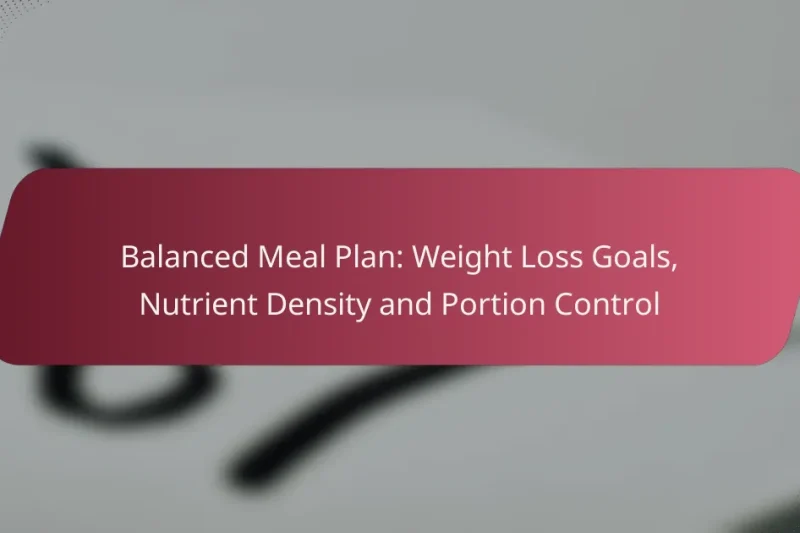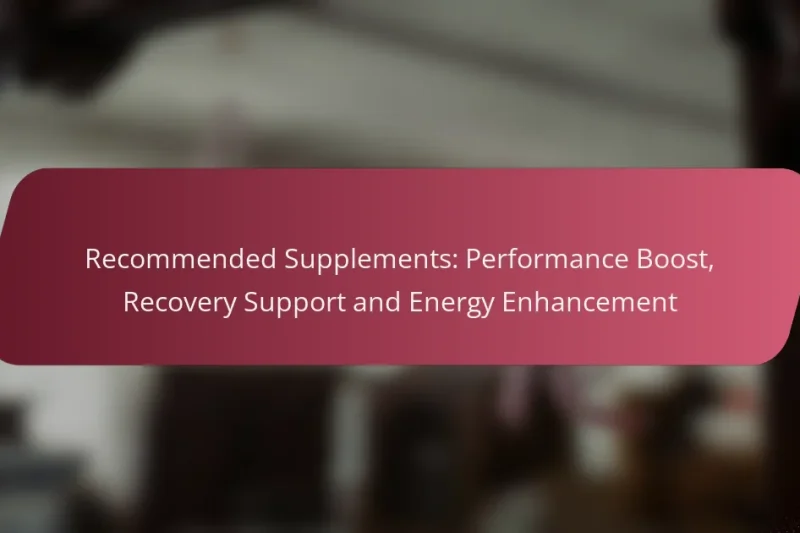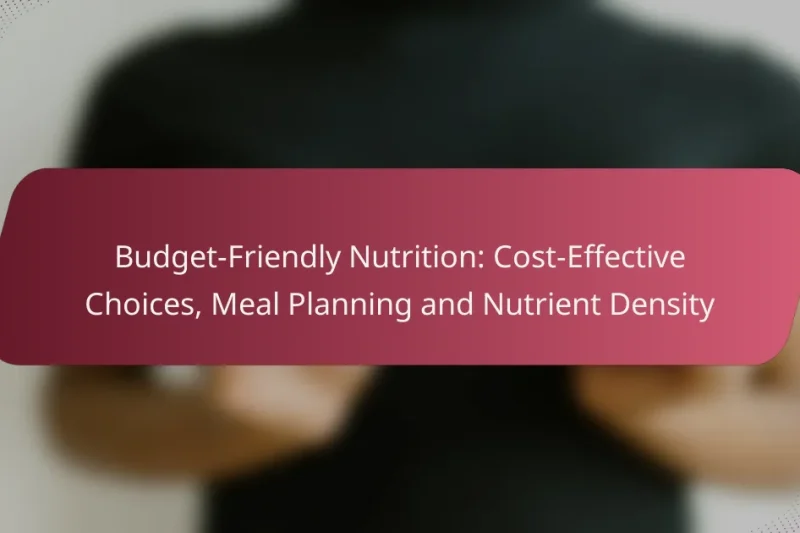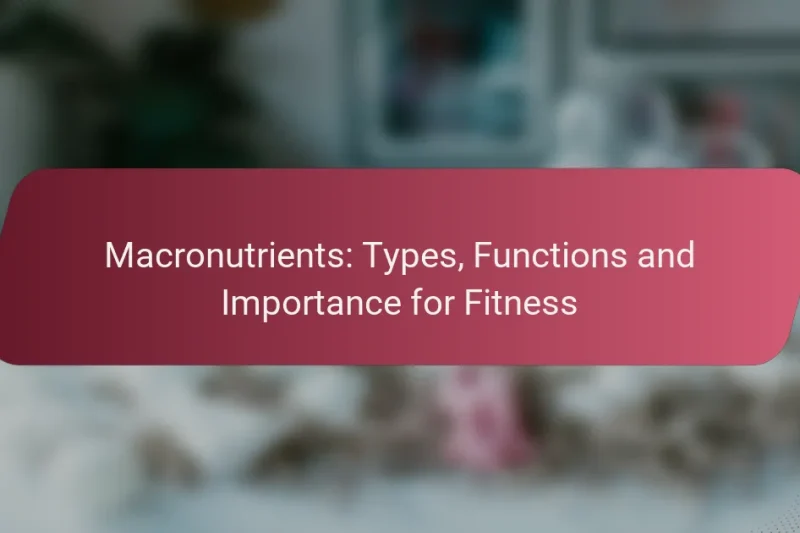A balanced meal plan is crucial for achieving weight loss goals, as it emphasizes nutrient-dense foods … Balanced Meal Plan: Weight Loss Goals, Nutrient Density and Portion ControlRead more
Squid Gym Nutrition Plans
At Squid Gym, our nutrition plans are meticulously crafted to support members in achieving their unique fitness goals. By focusing on balanced diets that include high-protein, low-carb, and customizable options, we ensure that each plan enhances performance and recovery while aligning with individual dietary preferences.
Recommended Supplements: Performance Boost, Recovery Support and Energy Enhancement
Incorporating the right supplements can significantly enhance athletic performance, support recovery, and boost energy levels. Popular … Recommended Supplements: Performance Boost, Recovery Support and Energy EnhancementRead more
Budget-Friendly Nutrition: Cost-Effective Choices, Meal Planning and Nutrient Density
Eating healthy on a budget is entirely possible by prioritizing nutrient-dense foods and making informed choices. … Budget-Friendly Nutrition: Cost-Effective Choices, Meal Planning and Nutrient DensityRead more
Meal Prep Strategies: Weekly Planning, Portion Control and Nutrient Balance
Meal prep strategies are essential for maintaining a healthy lifestyle, focusing on weekly planning, portion control, … Meal Prep Strategies: Weekly Planning, Portion Control and Nutrient BalanceRead more
Macronutrients: Types, Functions and Importance for Fitness
Macronutrients are essential components of our diet that significantly impact fitness and overall health. Comprising carbohydrates, … Macronutrients: Types, Functions and Importance for FitnessRead more
Vegan vs Traditional Diets: Nutritional Value, Performance Impact and Sustainability
The debate between vegan and traditional diets centers on their nutritional value, performance impact, and sustainability. … Vegan vs Traditional Diets: Nutritional Value, Performance Impact and SustainabilityRead more
Hydration Strategies: Electrolyte Balance, Timing and Intake Methods
Hydration strategies are essential for athletes, particularly in Ireland, where effective fluid intake, electrolyte supplementation, and … Hydration Strategies: Electrolyte Balance, Timing and Intake MethodsRead more
What are the best nutrition plans for Squid Gym members in Ireland?
The best nutrition plans for Squid Gym members in Ireland focus on balanced diets tailored to individual fitness goals. These plans typically include high-protein, low-carb, vegetarian, and customizable options, along with recommended supplements to enhance performance and recovery.
High-protein meal plans
High-protein meal plans are designed to support muscle growth and recovery, making them ideal for those engaged in strength training. Members should aim for protein sources such as chicken, fish, eggs, and legumes, with daily intake often recommended at around 1.6 to 2.2 grams of protein per kilogram of body weight.
Incorporating protein-rich snacks like Greek yogurt or protein shakes can help meet these targets. It’s essential to balance protein intake with carbohydrates and healthy fats to ensure overall nutritional adequacy.
Low-carb options
Low-carb meal plans focus on reducing carbohydrate intake to promote fat loss while maintaining energy levels. Members can benefit from foods like leafy greens, nuts, and lean meats while limiting bread, pasta, and sugary snacks.
A typical low-carb diet may consist of around 20-50 grams of carbohydrates per day, depending on individual goals. It’s crucial to monitor energy levels and adjust carb intake based on workout intensity and duration.
Vegetarian meal plans
Vegetarian meal plans provide a plant-based approach to nutrition, emphasizing fruits, vegetables, whole grains, and legumes. These plans can be rich in essential nutrients, but members should ensure adequate protein intake from sources like tofu, tempeh, and quinoa.
Including a variety of colorful vegetables and whole foods helps meet micronutrient needs. Members may also consider fortified foods or supplements for nutrients like vitamin B12 and iron, which can be lower in vegetarian diets.
Customizable plans
Customizable meal plans allow members to tailor their nutrition according to personal preferences, dietary restrictions, and fitness goals. This flexibility can enhance adherence and satisfaction with the diet.
To create a personalized plan, members should assess their caloric needs and macronutrient ratios, then select foods they enjoy. Utilizing apps or consulting with a nutritionist can provide additional guidance in crafting these plans.
Supplement recommendations
Supplements can play a beneficial role in supporting overall nutrition and performance for Squid Gym members. Common supplements include protein powders, creatine, and branched-chain amino acids (BCAAs), which can aid in muscle recovery and growth.
It’s important to choose high-quality supplements and consult with a healthcare professional before starting any new regimen. Members should prioritize whole foods first, using supplements to fill specific gaps in their diet as needed.
How do Squid Gym nutrition plans support fitness goals?
Squid Gym nutrition plans are designed to align with various fitness objectives, providing tailored dietary strategies that enhance performance and recovery. These plans focus on macronutrient balance, meal timing, and quality food choices to help individuals achieve their specific fitness aspirations.
Muscle gain
To support muscle gain, Squid Gym nutrition plans emphasize a higher intake of protein and calories. Consuming around 1.6 to 2.2 grams of protein per kilogram of body weight daily can help stimulate muscle protein synthesis.
Incorporating nutrient-dense foods such as lean meats, dairy, legumes, and whole grains is crucial. Additionally, timing meals around workouts can maximize muscle recovery and growth, with a focus on post-workout nutrition that includes both protein and carbohydrates.
Weight loss
For weight loss, Squid Gym nutrition plans promote a caloric deficit while ensuring adequate nutrient intake. Aiming for a reduction of 500 to 1000 calories per day can lead to a sustainable weight loss of about 0.5 to 1 kg per week.
Focusing on whole foods, such as fruits, vegetables, and lean proteins, helps maintain satiety and nutrition. It’s also important to monitor portion sizes and avoid high-calorie processed foods that can hinder progress.
Endurance improvement
Nutrition plans aimed at improving endurance prioritize carbohydrates as the primary energy source. Consuming 6 to 10 grams of carbohydrates per kilogram of body weight is recommended for athletes engaging in prolonged activities.
Incorporating a mix of complex carbohydrates, such as oats and whole grains, along with simple sugars during longer workouts can enhance performance. Hydration strategies, including electrolyte balance, are also essential for maintaining stamina during endurance events.
Recovery enhancement
Recovery is critical after intense workouts, and Squid Gym nutrition plans focus on replenishing glycogen stores and repairing muscle tissue. A combination of protein and carbohydrates within 30 minutes post-exercise can significantly aid recovery.
Foods like Greek yogurt with fruit or a protein shake with a banana are effective choices. Additionally, staying hydrated and including anti-inflammatory foods, such as berries and leafy greens, can further support recovery and overall performance.
What are the key components of a successful nutrition plan?
A successful nutrition plan includes a balanced approach to macronutrients, appropriate caloric intake, strategic meal timing, and effective hydration strategies. Each component plays a vital role in supporting overall health and fitness goals.
Macronutrient balance
Macronutrient balance refers to the proper distribution of carbohydrates, proteins, and fats in your diet. A common guideline is to aim for approximately 45-65% of total calories from carbohydrates, 10-35% from protein, and 20-35% from fats, though individual needs may vary based on activity level and goals.
For example, athletes may require higher protein intake to support muscle recovery, while those focusing on weight loss might benefit from a higher fat intake to promote satiety. Adjusting these ratios can help optimize performance and body composition.
Caloric intake
Caloric intake is the total number of calories consumed through food and beverages. To maintain weight, you should consume roughly the same number of calories as you burn; to lose weight, create a deficit of about 500-1000 calories per day for a safe weight loss of 0.5-1 kg per week.
Tracking your caloric intake can be done through various apps or food diaries. Be mindful of hidden calories in beverages and snacks, which can significantly impact your overall intake.
Meal timing
Meal timing involves planning when to eat to maximize energy levels and recovery. Consuming meals and snacks at regular intervals, typically every 3-5 hours, can help stabilize blood sugar levels and prevent excessive hunger.
For those engaged in intense training, eating a balanced meal or snack containing carbohydrates and protein within 30-60 minutes post-workout can enhance recovery and muscle synthesis. Experimenting with timing can help you find what works best for your body.
Hydration strategies
Hydration strategies focus on maintaining adequate fluid intake to support overall health and performance. A general recommendation is to drink at least 2-3 liters of water daily, adjusting for activity level and climate conditions.
During workouts, aim to drink about 500-1000 ml of water per hour, depending on sweat loss. Incorporating electrolyte-rich beverages can be beneficial for prolonged exercise sessions or in hot environments. Always listen to your body’s thirst cues to stay properly hydrated.
How to choose the right nutrition plan at Squid Gym?
Choosing the right nutrition plan at Squid Gym involves evaluating your fitness goals, consulting with nutritionists, and considering any dietary restrictions. This tailored approach ensures that your nutrition aligns with your personal health objectives and lifestyle.
Assess fitness goals
Start by identifying your specific fitness goals, whether it’s weight loss, muscle gain, or improving endurance. Each goal requires a different nutritional strategy; for example, muscle gain typically demands higher protein intake, while weight loss may focus on calorie deficit.
Consider using a simple framework to categorize your goals. For instance, you might set short-term goals (like losing a few pounds in a month) and long-term goals (such as completing a marathon). This helps in selecting a nutrition plan that supports both immediate and future objectives.
Consult with nutritionists
Engaging with a qualified nutritionist can provide personalized insights into your dietary needs. They can analyze your current eating habits, recommend adjustments, and create a plan that complements your fitness routine.
During consultations, be prepared to discuss your lifestyle, preferences, and any specific health concerns. This information allows nutritionists to tailor a plan that is not only effective but also sustainable for you.
Consider dietary restrictions
When choosing a nutrition plan, it’s crucial to factor in any dietary restrictions you may have, such as allergies, intolerances, or ethical choices like vegetarianism or veganism. These restrictions will influence the types of foods you can include in your diet.
For example, if you are lactose intolerant, you might need to find alternative sources of calcium and protein. Always communicate your dietary needs clearly to your nutritionist to ensure your plan is safe and effective.
What are the pricing options for Squid Gym nutrition plans?
Squid Gym offers a variety of pricing options for its nutrition plans, catering to different needs and budgets. These plans typically range from basic meal guidance to comprehensive coaching services, with prices varying accordingly.
Basic Meal Plan
The Basic Meal Plan is designed for individuals looking for straightforward nutritional guidance. This plan usually costs around $50 to $100 per month and includes meal suggestions and portion sizes tailored to your fitness goals.
When choosing this option, consider your dietary preferences and any specific nutritional needs you may have. It’s a good starting point for those new to structured meal planning.
Standard Meal Plan
The Standard Meal Plan offers more personalized support, typically priced between $100 and $200 monthly. This plan includes customized meal plans, regular check-ins, and adjustments based on your progress.
This option is ideal for those who want a more hands-on approach and are serious about achieving their fitness goals. Look for plans that offer flexibility to accommodate changing dietary needs.
Premium Coaching Plan
The Premium Coaching Plan is the most comprehensive option, generally costing $200 or more per month. It includes one-on-one coaching sessions, detailed meal tracking, and ongoing support tailored to your individual journey.
This plan is best suited for those who require intensive guidance and motivation. Ensure that you are ready for a commitment, as this level of support can significantly enhance your results.






